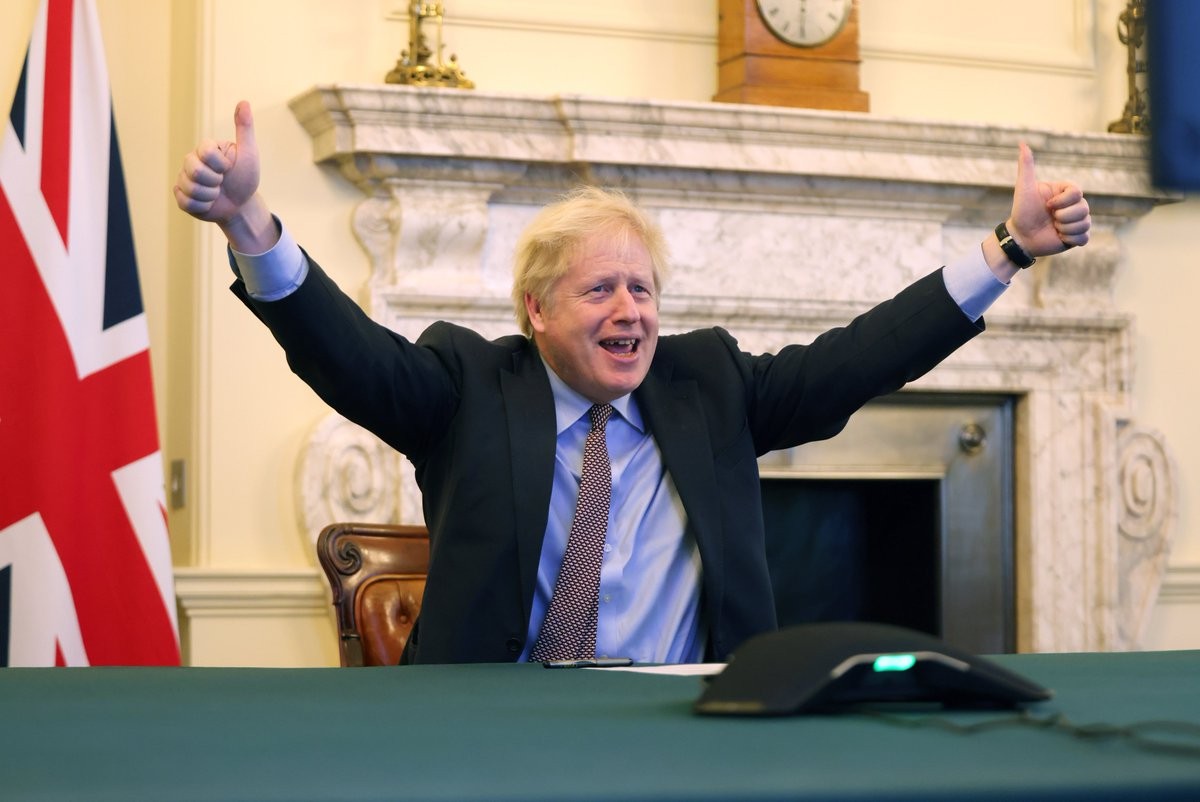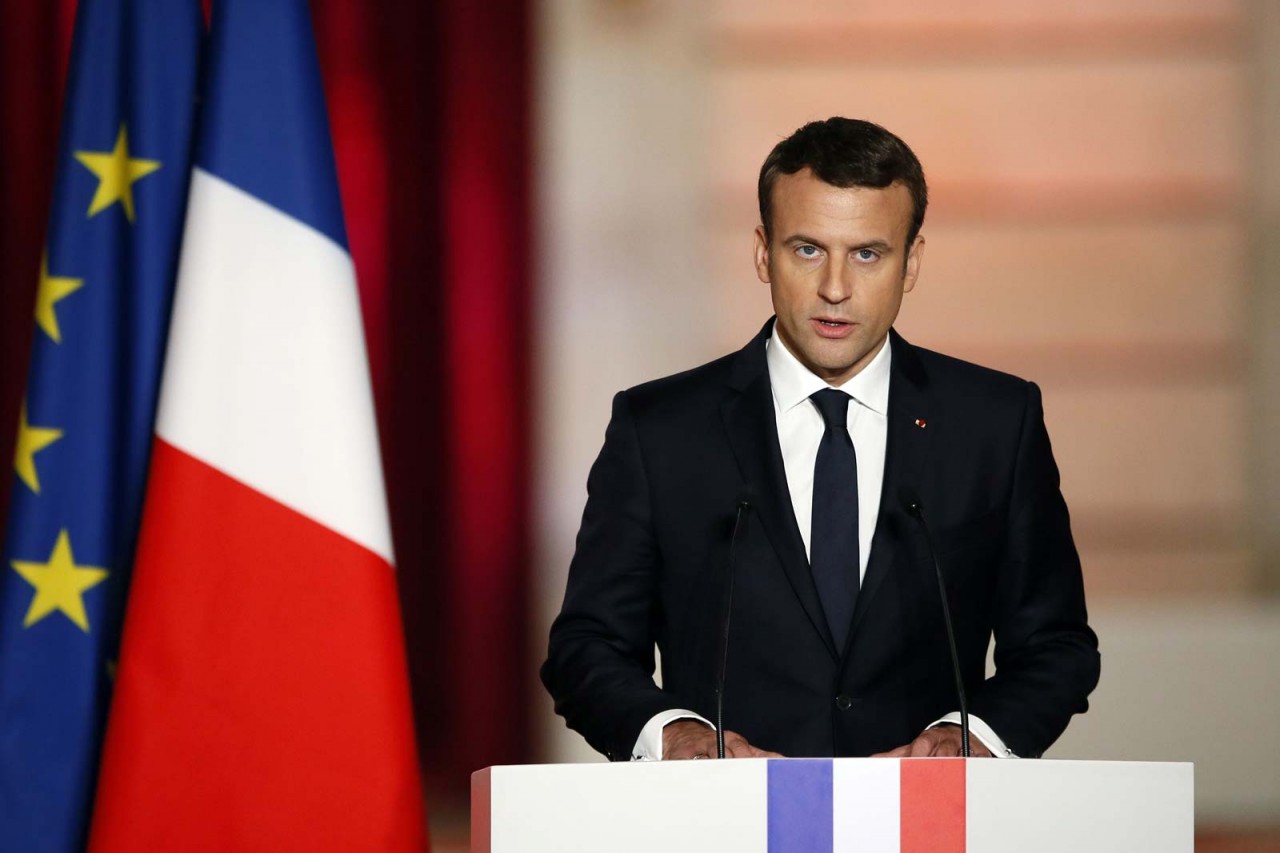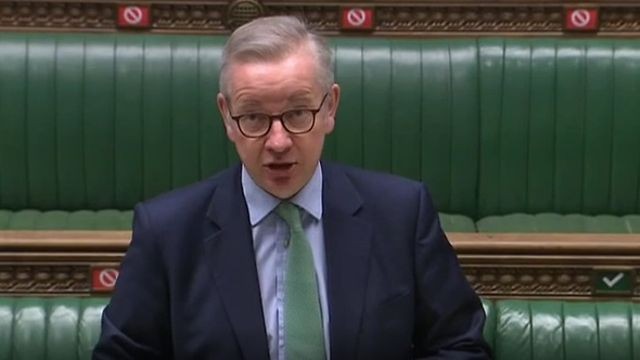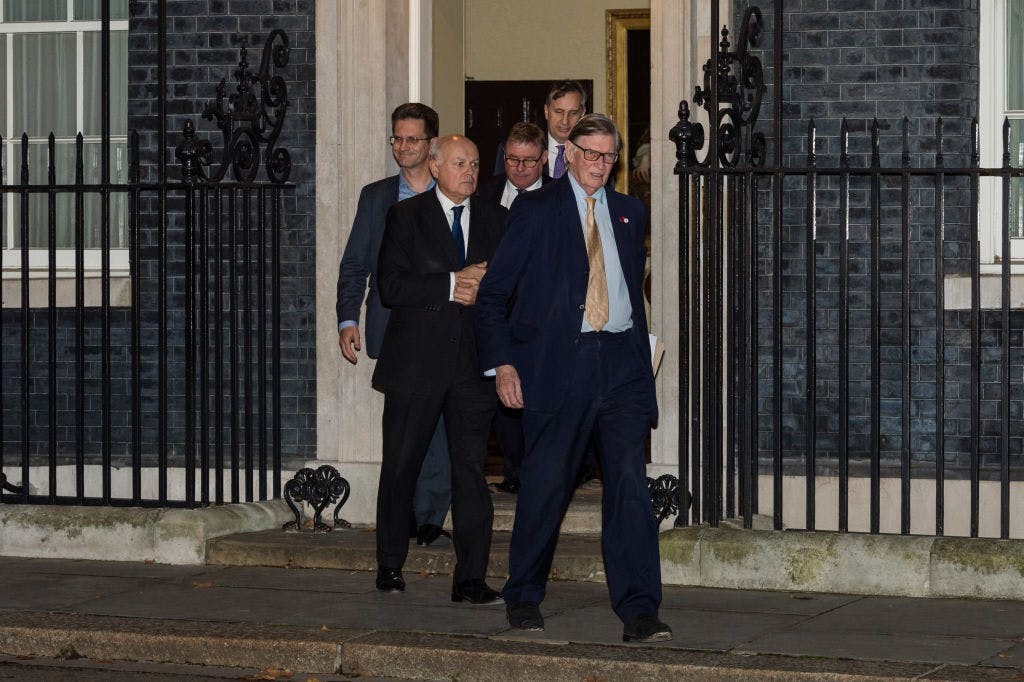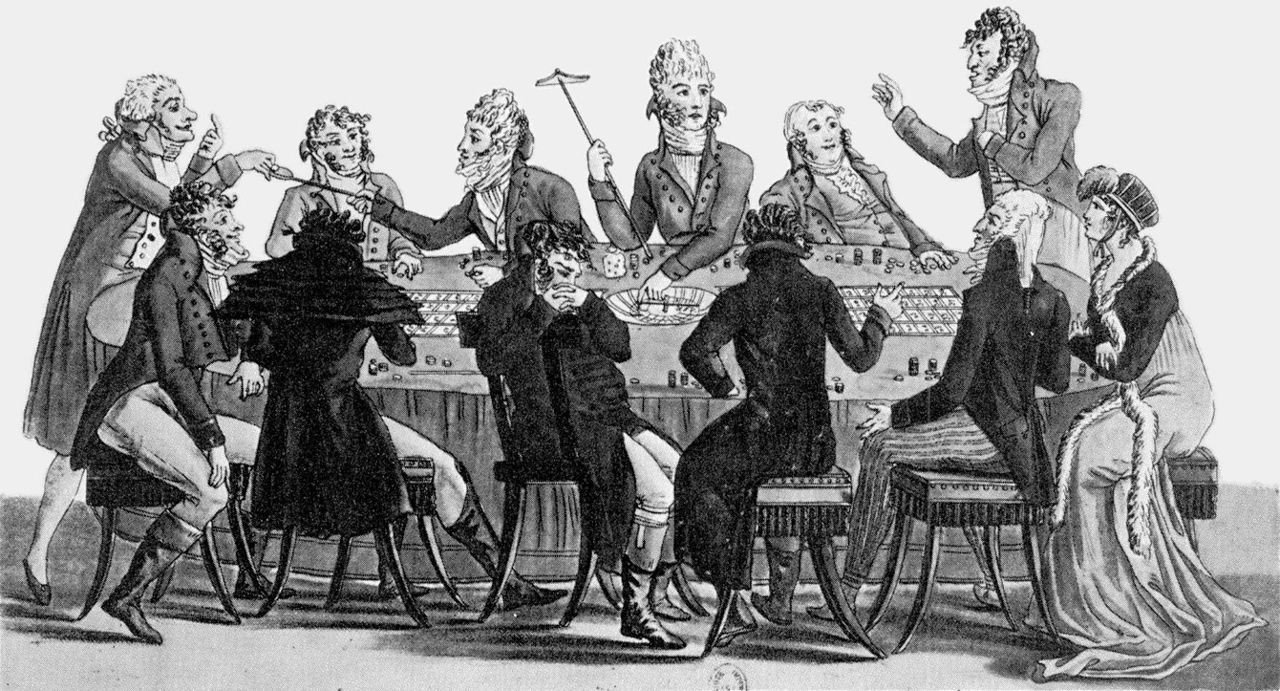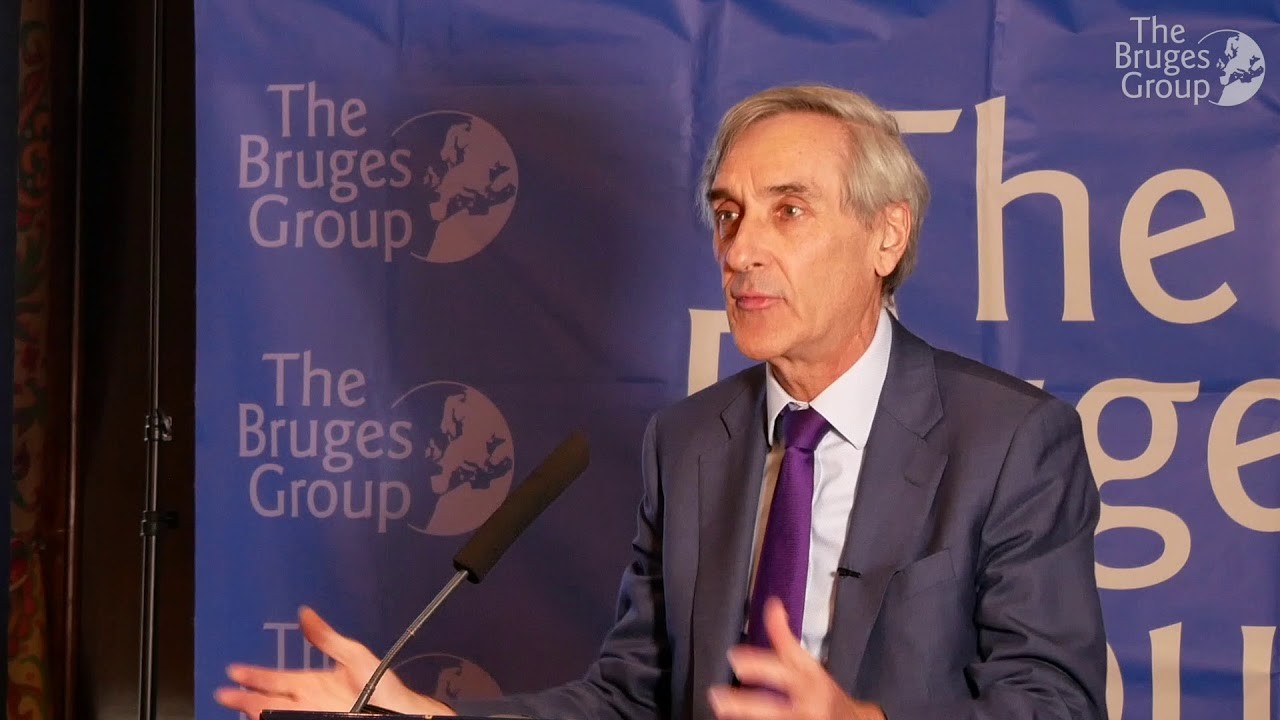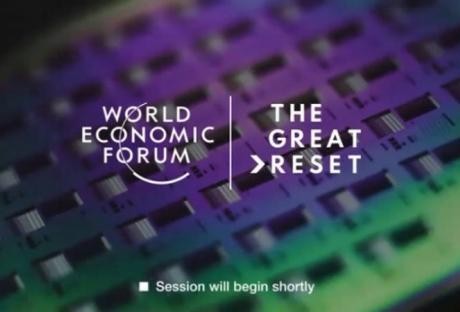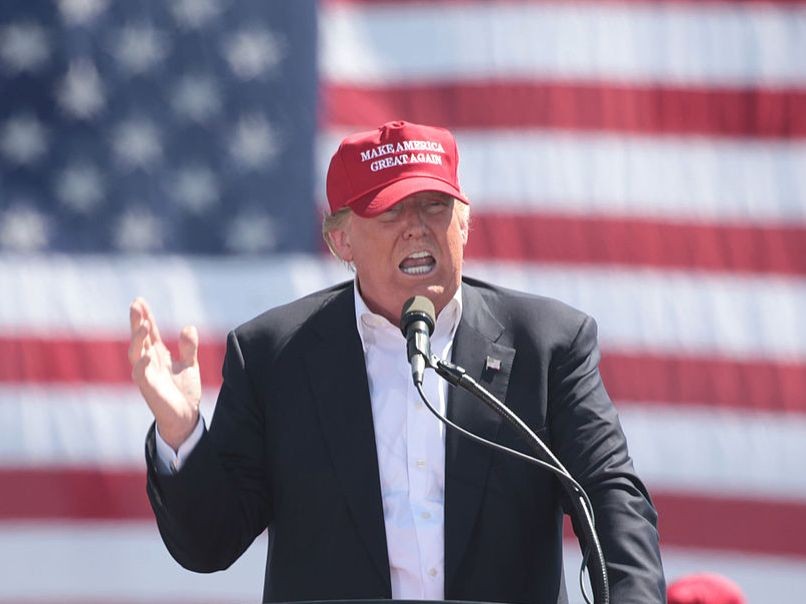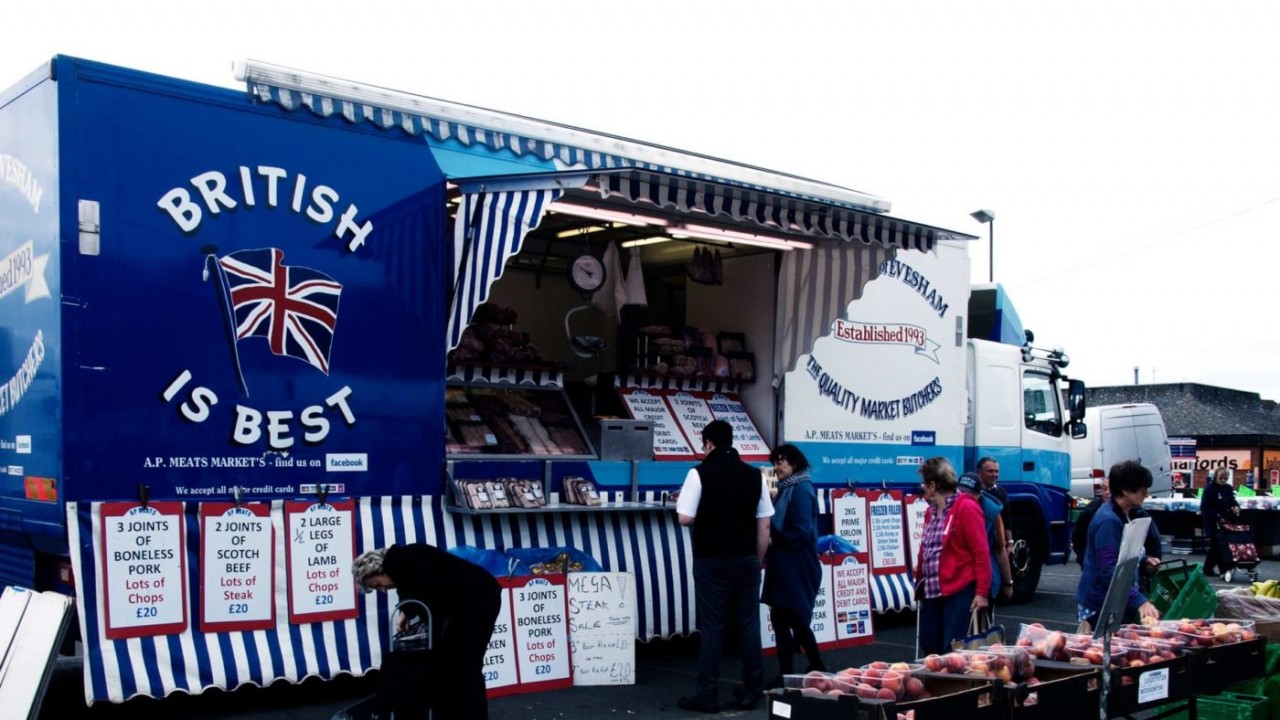Bruges Group Blog
The Great Financial Crisis (GFC) of 2008 has left many cadavers in its wake; zombified economies with under performing companies kept under life support by a presumed modern monetary theory, not too dissimilar to what Japan embarked on in the late 1990s. Quantitative Easing where the quantity is never enough, and the pressure is such that central b...
Twilight of the Gods" was Richard Wagner's last in the cycle of music dramas called, "The Ring of Nibelung," which is based on old Norse mythology prophesying war among beings and gods that results in the burning and remaking of the world. It is always deeply dissatisfying when a negative prediction comes true—especially predictions which are meant...
The challenges that are facing the European Union and Brexit are quite vast which is why there are so many opinions about them. Since the debate has started, many heated arguments have been expressed opposing both sides. As more people want to have their voice heard, many organizations are working towards starting more panel discussions so that the...
Do you still visit your nearest land-based casino in Hungary to play your favorite table games or card games? Gone are the days when players would queue at the casinos and pay to play games. Currently, many revolutions have happened in the gambling industry to make it better. There is no more going to the land-based arenas because the technology ha...
The BBC, first national broadcaster in the world, and founded almost a century ago, once was respected, and indeed loved, acting as the voice of the nation in even the darkest times. How is it then that it is now reviled, and distrusted by so many, to the extent that its survival is under threat?
Lord Reith, appointed as first Director General in 1927, remains the most famous of those to hold that post, not least because he established the principles by which the organisation was expected to abide, including an equal consideration of all viewpoints, probity, universality and a commitment to public service. He stated that his goal was to broadcast, "All that is best in every department of human knowledge, endeavour and achievement. The preservation of a high moral tone is obviously of paramount importance”.
In the great days of radio the BBC reined supreme, never more than during the Second World War, when it, together with Churchill, provided the voice of defiance to the Nazi barbarians, and brought hope to those throughout the world who were suffering under the fascists. The World Service was established in 1932, and broadcast in many languages. Many of the programmes such as “The Brains Trust”, treated listeners as intelligent, with experts answering questions from the public in an unbiased manner.
After the war the emphasis began to shift to TV, where presenters such as Sylvia Peters, and McDonald Hobley, provide its public face, and many of radio’s most successful programmes found a new home. I still remember watching the coronation in black and white on our old Pye set. In the decades that followed competing channels, the arrival of colour television, and social developments changed the BBC in many ways, but it was still regarded as a trustworthy source of information, as well as a producer of excellent programmes, including many comedies such as “Dad’s Army”, “Fawlty Towers”, “Till death us do part” and “It ain’t half hot Mum”. These were very popular, and it was obvious to anyone of intelligence that, when they included characters expressing bigoted views, the intention was to ridicule the latter, not promote them. Satire such as “That was the week that was” was aimed basically at the political establishment.
What a contrast is presented by the modern BBC. Although it still produces some excellent programmes, such as nature documentaries, it has, quite unnecessarily, reduced standards to meet the lowest common denominator, as it seeks to compete with the output of the commercial channels. Given that it is guaranteed its income via the licence fee, it is not obliged to chase ratings, yet so much of what it broadcasts fails to provide quality programmes to improve knowledge, and understanding of the world. Apart from “University Challenge” the quiz shows seemed targeted at the products of modern education, who, through no fault of their own, are being failed by a system which insists everyone must have prizes. This is all part of the BBC’s stated ambition to appeal to youngsters, quite ignoring the fact that the demographic profile of the nation points to a gradually ageing population, while the young are anyway just not interested in public service broadcasting.
However the greatest scandal, and one which undermines the whole original ethos of the BBC, is the way in which it has abandoned any idea of being unbiased, and champions the views of the metropolitan, left liberal elite. It declared some years ago that it would not allow those who question the whole concept of anthropological climate change to air their opinions as “the science is settled”, despite the fact that this is not true. It even encourages comparisons with holocaust deniers, an insult to decent people who refuse to accept a fashionable idea just because it is fashionable. However undoubtedly the most egregious example of this bias has been the manner in which Brexit has been treated. The entire organisation seems to be staffed with those who proved to be in the national minority, yet it took, and still takes, every opportunity to air pro EU views, while attempting to depict Brexiteers as right wing, bigoted, nationalists. One only had to see the expression on the faces of the presenters as the result of the referendum became clear to know exactly where their sympathies lay.
The bias shown extends to all those issues which are becoming increasingly contentious, such as race and gender, with virtue signalling spokesmen for the radical left being given preference over those who reject the claims of these bigots. The very unfunny comedies now broadcast are predicated on the premise that to attack those who oppose rule by Brussels, together with the Royal family, deserve mockery, while the BBC disowns the superior shows from the past, seeking to attribute malign motives, even to gentle comedies such as “Dad’s Army”.
Where previously satire was directed at the powerful, now the targets are ordinary people who happen to disagree with the lunatic views of the radical left. Programmes such as “Today” can be relied upon to present a totally slanted view of issues, calling upon the usual suspects to offer their views, while censoring those who actually speak for the majority. The choice of those to review the newspapers is usually heavily weighted to those who quote from the “Guardian”, or the “Observer”, ignoring the fact that these papers are read by a small minority. I remember Frederick Forsyth being dropped from “a point of view” because his opinions gave the BBC lefties a fit of the vapours. Even the tone of voice used by presenters is a guide to their biases as they convey incredulity that anyone might hold views different to the accepted consensus among the liberals. A prime example of this kind of arrogance was the treatment meted out to an MP who happened to have the union flag in his room, as if supporting one’s own country was a sign of stupidity or worse. It is also obvious that the audiences for “Any Questions” are drawn from basically one side of the political spectrum.
One could go on and on about the reality, but nothing will change unless action is taken to cleanse the Augean stables of the BBC. This should be part of the fightback against the so called “woke”, who are destroying this country. That the national broadcaster should have fallen victim to these people is a disgrace, and the decline and fall of such a British icon is a tragedy.
Blockchain is gaining traction worldwide as a stable and innovative technology that businesses can build platforms and applications on to improve various systems in different industries due the numerous conferences, video series and other educational platforms that create awareness. Of course, this also means that blockchain technology has been upg...
Some people believe there is no money in writing, and they could not be wrong more. You can make money from any aspect of writing as long as you turn it into a payable service. Screenwriting, copywriting, essay writer jobs and all other writing opportunities can bring in good money if you take the proper steps. There are numerous ways to star...
As we move through 2021 the restrictions that govern our lives over the last year or so vary from area to area and country to country and because of the continued uncertainty more people than ever are using the internet to shop and buy goods and services and to source their entertainment. One industry that has blossomed during this time is the onli...
Friday just gone marked the end of an era for not just Britain, but the whole world. The death of HRH Prince Philip, Duke of Edinburgh will be mourned by people from all four corners of the world, for he was a staple of British society and a true great Briton. For such a staple of Britishness, and arguably the most recognised Briton after HM The Qu...
By Morten Dam The long serving eurosceptic stalwart and Danish MEP from 1979 until 2008 has passed away. After a time of illness he died in Arresødal Hospice in the north of Zealand, Denmark. Jens-Peter Bonde has been an influential eurosceptic voice for over a decade. He was a founder of Danish People's Movement Against EU in 1972 and has be...
The online gambling industry is in a tricky situation across the world. Each one of the United States is coming up with its own set of regulations, the EU never had a centralised regulatory institution across the continent, and Asia doesn't look at gambling with a good eye either. Currently, online gambling operators settle in the Isle of Man or th...
Once upon a time, not many people would have thought that the online casino industry would become so popular as it is today. The gambling industry has existed for many years and each year, the industry generates a huge amount of money. But as the years have gone by, the online casino industry has slowly increased its popularity concurrently with th...
Have you recently come across a whole lot of products that contain CBD but have no idea what it is or how it should be used? Are you curious as to what CBD is and why it seems to have become so incredibly popular over the last few years? Since the gradual legalisation of recreation marijuana and places around the world in 2012, the marijuana indust...
Are you tired of constantly losing when you play casino games and want to give up? Are you wondering if you can actually ever win at casino games because you keep having bad luck? Casinos are place where people go to have fun, relax, and win money. Unfortunately, it's not just the good times you'll find at the casinos. There are also many mistakes ...
The online gaming industry is booming. Since its start in the late 1990s, online gambling has grown exponentially and the trend doesn't seem to be changing. We spend more and more time indoors - greatly thanks to the pandemic - and much of that time is spent looking at our phones, tablets or computers. Playing video games and casino games is the fa...
As the world is battling one of the most dangerous pandemics in the last century, we have realized that health is the biggest treasure that we can possess. We have to take care of ourselves, treat our bodies with respect, and boost our metabolism so that we can cope with different conditions or illnesses. As we all know, the 21st century has ...
IntroductionAlthough many people play slot machines, it is a surprise to discover that not many people actually understand how these machines work. Did you know that slot machines are one of the most popular games for physical casinos and have been around since the 1980s? Slot machines are most popular in Australia and continue to thrive in popular...
I had the opportunity to speak to Todd Muller, MP for the Bay of Plenty in the North Island of New Zealand, the Opposition National Party's Spokesperson (Shadow Minister) for Trade, Export Growth, and Internal Affairs, and the Former Leader of the Opposition. We spoke on matters international and domestic, concerning Britons, New Zealanders, and hi...
If you're a parent in Singapore, one of the major considerations in the upbringing of your child is quality education. The country boasts one of the best educational systems in the world. Preschools play a critical role in building this strong foundation of education, though the programmes are not mandatory. There are many preschools available to y...
CBD is an all-in-one natural remedy people prefer. It has multiple benefits and given quite promising results. There are many products of CBD like the best CBD capsules, CBD gummies, oil, balm, and many more. CBD, or cannabidiol, a natural substance that comes from the hemp plant, has really compelled people to fall in love with it. It delivers a n...
The main character and inventor in the H.G. Wells book, 'The time Machine', decided to travel through time to 800,000 years into the future looking for a period without conflict. If I was given the opportunity to travel through time it would be into the past as the future looks increasingly to be a very unpleasant place to be. The way things are go...
The remote betting and gaming industry in the UK is a rapidly evolving area. As technology advances, so does society's access to new technologies. Traditionalists will argue that this may be the death of traditional gambling establishments, but they seem to be missing out on one key component: convenience. As online casinos are becoming more and mo...
This new study, issued through The Bruges Group, dissects a main response of the European Central Bank to the pandemic: another programme of bond buying, taking up hundreds of billions of euros of Eurozone member state government bonds into the ECB's Pandemic Emergency Purchase Programme, the "PEPP". The PEPP bought the majority of new debt issued ...
At work, you are always going to want to find new ways to not only innovate work processes but also ways to make them much easier for your employees. The moment you stop attempting to innovate is the moment another company surpasses you in the industry. That being said, what should you do to innovate and improve your company? Streamlining work proc...
The EU housing market has already seen major changes caused by Brexit. The first major change was a "pre-Brexit buying spree" that boosted home sales by 6.1%. The National Association of Estate Agents (NAEA) says more people are looking to buy homes before Brexit is complete. However, many people are still waiting to see what happens with Brexit be...
A good amount of sleep is an important factor in everyone's life as it helps your body to function in a proper way. Moreover, in today's competitive world falling asleep is an immense problem for most people. Bad quality sleep can have negative effects on several body parts and can also create neurological problems. These problems can further lead ...
The reaction to the report by the Commission on Race and Ethnic Disparities proves, if proof was needed, that those who have dominated debate on race in this country for many years are not driven by morality, as they pretend, but by a left wing ideology which hates our society, and by the desire to ensure that their access to lucrative consultative fees, book deals, and profits from running absurd training courses continues unabated. The latter, encouraged by politicised HR departments, and permitted by pusillanimous managers afraid of ‘giving offence’, have been responsible for countless blameless employees being obliged to attend classes where they are expected to offer mea culpas for opinions and actions of which they are entirely innocent.
These courses are nothing more than the product of left wing propaganda, sowing discord when none previously existed. The underlying assumptions that only white people are racist, and that all white people are racist, albeit many subconsciously, is itself racist, and an insult to the vast majority of people in these islands, many of whom have been cowed by political correctness into granting credence to these false beliefs. When I was forced to attend one of these travesties I recall being the only person to raise my hand when asked if anyone of those present, who were all white, had not discriminated against others on the grounds of race. The others attending were too frightened to reject presumed guilt, but as a lifelong trade unionist, and reader at my church, I refused to be intimidated.
Of course the people who run these courses claim that to say one is innocent is proof of unconscious guilt, a proposition that the Stalinist and Maoist self criticism meetings used to condemn innocent people, and is worthy of Orwell’s 1984. The government has concluded that these courses have cost taxpayers thousands of pounds when used on civil servants, for no useful purpose, and have accordingly banned them in bodies under their control.
The manner in which our universities have largely been taken over by hard left academics ensures that the only acceptable view is a parody of Orwell’s sheep in Animal Farm, chanting ‘White bad, non white good’, so students who do not subscribe to this philosophy are marginalised, and treated as guilty of racism. Unfortunately our young people have been so brainwashed by the Marxists who have infiltrated our educational institutions, aided and abetted by those such as the disgrace which still calls itself the ‘British’ Broadcasting Corporation, that they accept these lies.
The membership of the Commission on Race and Ethnic Disparities is approximately ninety per cent non white, yet the political activists who have responded treat the report as if it were some sort of statement by the Ku Klux Klan. The Runnymede Trust, called it a “gross offence” to grieving families of ethnic minorities who have died of Covid, as if the virus has been somehow directed to infect the latter in preference to the white community, while Black Lives Matter, said that it was “perplexed” by the report’s methodology, and “disappointed” by oversight of police racism. This latter organisation seems to have less concern for anti Semitism in its ranks, so obviously for them some people are more equal than others. The usual suspects, when interviewed by their fellow travellers in the BBC spoke as if the people who produced the report were merely government dupes, whose efforts could just be dismissed.
The reality is that of course racism exists in the UK, as it does in Japan, China, Russia, the USA, and indeed around the world. However it is neither institutionalised, nor structural, but rather the result of individual prejudices. To judge anyone by the colour of their skin is unkind, deplorable and just plain wrong. Indeed, as those of us who follow Christ know, he said “Judge not, that ye be not judged”, a principle which everyone might consider following. The point is that in this country it is not acceptable to allow personal prejudice to affect employment, housing, or the manner in which one is treated by the organs of government, such as the police.
There is no doubt that when activists of any sort demand public enquiries, or government reports, on any subject, they have already determined what result they expect, so, if those involved dare to find against them, woe betide them as they may expect to be subjected to abuse. It is utterly pointless to ask experts to give of their time if they are to be bullied into agreeing with whatever the extremists desire. Undoubtedly, if at some stage an enquiry is held into the handling of the Covid pandemic the loudest voices will be demanding that the government be condemned for failures, whatever the truth may be, and however much hindsight is allowed to take precedence over reason.
Those keen to rubbish the report on race in the UK should be wary. Although there are morons around who hate people merely because of the category into which they fall, the majority of Britons are mostly easy going, and consider fairness to be a virtue. If however perfectly innocent people find themselves constantly demonised on the basis of their being white they will react with anger. The result will not be better race relations, but a polarisation in society. Of course this is precisely what the Marxists want, as they continue to believe that causing social upheaval will give them the opportunity to gain power, before instituting their socialist nirvana. It seems to pass them by that this never works, and that all they end up with are rightwing regimes which crush them, but that’s what you get when you insist on following the ideas of foolishly idealistic nineteenth century intellectuals, instead of genuinely seeking a better world.
We have come a long way since the dark days when minorities were indeed discriminated against as a matter of course, and it would be a tragedy if we allow the politically motivated divisiveness promulgated by the hypocrites of the acolytes of extremism to win.
It is claimed that two thousand years ago a Roman citizen could walk across the known world free of the fear of attack, protected only by the words ‘Civis Romanus Sum’ translated as ‘I am a Roman citizen’, as all understood that the Roman state would punish any who harmed its citizens with unfailing retribution.
Of course one should not use the Romans as a model of how to behave, as they were notoriously hypocritical, in that they called their opponents barbarians, while they themselves maimed, blinded, castrated and enslaved populations who tried to defy them, committed genocide in Gaul, and elsewhere, and applied bestial punishments such as crucifixion and burning. The one lesson one can draw from the their claimed success in enforcing their laws is that deterrence works, not always, and everywhere, but generally.
The idea that the punishment should fit the crime, as espoused by Gilbert and Sullivan’s Mikado, receives little support from modern criminologists, yet is largely supported by the victims, who see pathetically soft penal policies enabling vicious felons to escape any sort of meaningful justice. I am old enough to remember when criminals would, before setting out some nefarious enterprise, search each other for deadly weapons, as they knew that, should one of their number kill, they would all hang.
Thanks to the dominance of liberal ideas over recent decades we now live in a society where murders, rapists and violent thugs have been given punishments which neither deter, nor represent any sort of justified retribution, ignoring the pain of those who suffered at their hands. Politicians of all parties are guilty of perpetuating this state of affairs, claiming the moral high ground by expressing concern for the human rights of the offenders, while ignoring those of their victims, and of those who will suffer in the future. My sympathies, and I have no doubt those of the vast majority of ordinary people, lie with the baby girl murdered, or starved to death, by those who should be taking care of her, the woman attacked and raped when walking down the street, the spouse who suffers domestic abuse, the youngsters stabbed to death near their homes by those who carry knives as a macho statement, the people assaulted because of the colour of their skin and every innocent who deserves the protection of the law, but sees lawyers, psychiatrists and the like doing all they can to excuse the thugs, and prevent them receiving the punishments they richly deserve.
Having left the EU we could reinstate capital punishment for murder, while the absurd policy of releasing offenders when they have completed half of their sentences should be ended. Rather then reductions due to good behaviour, if inmates are guilty of bad behaviour the sentences should be increased, although no doubt so called progressives would have a fit of the vapours at the thought. These latter always claim that execution is not a deterrent, a ridiculous assertion, but even were it to be true, it is also a justified retribution for the heinous crime committed.
Now we are faced with a further failure in the enforcement of justice in that the police force is increasingly falling under the sway of those who clearly see their function as running a Thought Police, rather than a body whose aim is to deal with real crime. Senior officers encourage the persecution of people who are doing no more than exercise their right to free speech, characterising expressions of opinion as ‘hate’ crimes, while pandering to paranoid, and politically motivated, enemies of democracy, who take constantly offence where none is intended. There is no justification for encouraging those who seek to inflame any sort of hatred against minorities, but such incidents now form a small part of the cases raised by those whom seek to suppress free speech.
Two principles which are totally ignored by the high priests of political correctness are that allegations are proof of nothing, while one is innocent until proven guilty. A former police officer, is taking Humberside Police to court over reported 'hate incidents’, as he was previously told by Humberside Police that he had been reported for hate speech because of tweets that were anonymously reported as 'offensive' and 'transphobic'. Despite being told he had committed no crime, a policeman told him he needed "to check your thinking". His record now clearly states that he has committed a 'non-crime' 'hate incident'. The problem is, if something is perceived as hateful, it is recorded as hateful. No evidence is needed. There is nothing you can do to change its status, and it remains on your record permanently. 1984’s O’Brien would be proud!
I have known many police officers, both personally, and in my time playing for my various sports clubs, at golf, tennis, squash or latterly bowls against their teams, and I also know how many are disgusted by the way in which the force has been politicised, its objective no longer being to fight real crime. The ordinary courageous policemen, and women, daily put their lives on the line to deal with the Marxist mobs of Stop the War, Extinction Rebellion, BLM etc., while facing criminals carrying guns, who are no longer afraid to use them. They are being betrayed by the liberal leaders now dominating the force. The days when every policeman had to perform a spell of beat duty, and were not required to pursue academic qualifications, rather than learn on the job, have gone, and politically trained automatons are preferred to real coppers.
In a letter published in the national press in 2018 one ex policeman reported “I served in the Met in the Seventies, and would report for night duty at Kings Cross. As well as constables in panda cars, a van to collect the drunks, an area car for emergency calls, and pursuits, officers would be assigned a beat to patrol on foot. If a break-in or damage was reported the next day from your beat, you had a lot of explaining to do. No wonder the crime rate is soaring with no coppers on the streets looking for crime, instead of waiting for it to happen. Where’s our thin blue line gone?”.
We want officers visible on our streets, not sitting in front of computers pursuing those who dare to hold a different opinion to metropolitan elitists. I remember when bobbies would stop cyclists riding on pavements, as well as panda cars stopping those with non functioning car exhausts. As was discovered in New York, if decent behaviour is enforced in even small things, beneficial effects will be felt throughout society.
When the state tells the people that they cannot respond to attacks, but must leave it to the organs of the law, then it is in effect agreeing to a contract that the state will take effective action against the lawbreakers itself. If it constantly refuses to do so then it is hardly surprising that people hold it in contempt. Respect for the law is essential if it is to be obeyed.
It is well past time for soft laws, inadequate sentences, politicised police, slippery lawyers and appeasing politicians to be consigned to the dustbin of history.
On a Rhine cruise some years ago my wife and I visited the beautiful town of Heidelberg and, while touring the castle, were informed of an interesting historical fact that contains a lesson for today's so called liberals and progressives. In the seventeenth century one of the Electors anticipated war and built strong fortifications. No one attacked. His successor discounted the possibility of war, weakened the defences and, unsurprisingly, saw the castle overwhelmed.
This is proof of the truth of the statement found in Latin author Publius Flavius Vegetius Renatus's tract “De Re Militari” (4th or 5th century AD), where he says “Igitur qui desiderat pacem, praeparet bellum” which translates as “Therefore let him who desires peace prepare for war.". This adage is generally better known as “Si vis pacem, para bellum” or "If you want peace, prepare for war”, and indeed it is the motto of the Royal Navy, the Norwegian Military Academy, part of the US Marine Corps, and numerous other military organisations throughout the world. This is not because of any bellicose desire to fight wars, but because military men are well aware that the best way to avoid conflict is to be prepared in the event it should come, and to be able to counter, and deter aggressive moves by one’s enemy before these escalate to the level of actual warfare.
In would be unfair to characterise the people of the UK, and before that of England, as being warmongers, but, over the centuries, we have proved ourself no shrinking violets, having fought against more other nations than any other country, a result of being one of the world’s oldest nation states, the creation of the Empire, and the desire to preserve the balance of power in Europe.
However we have at times failed to give sufficient priority to the Armed Forces, most obviously in the inter war years of the 20th Century, when we failed to maintain an adequate military in the face of the growing threat from Germany, as the politicians sought to appease the fundamentally unappeasable. Thanks to the still overwhelming strength of the Royal Navy, the bravery of the Air Force, and the mighty allies brought to our side by the imbecilic decisions of a paranoid megalomaniac, we survived.
Despite escaping from destruction by the skin of our teeth, the post war years show that both politicians, and ordinary people, have, in many cases, not learned the lesson. When we were confronted by a totalitarian power, implacably opposed to our way of life, and possessing nuclear weapons, the reaction of those such as CND was to support disposing of our stocks unilaterally. Obviously many were fellow travellers, who wished to see Communism triumphant, but others adopted the stance of the ostrich, burying their heads in the sand, and apparently hoping the Soviets would just go away.
The reality proved to be that nuclear weapons, seemingly capable of annihilating the opponent in a single decisive blow, were never used, and eventually our enemies collapsed, thanks to the inability of their economic system to match that of the West. The reason they never resorted to using their H-bombs was that any ensuing victory would have been pyrrhic, thanks to the certainty of mutually assured destruction. CND could not have been more wrong.
How many times in recent years have we seen defence reviews, while claiming to to create a leaner, but meaner military, actually being based on saving money, while relying on the power of the USA to ensure that her allies would not fall before a common enemy. Not only is this dishonest, it is so short sighted as to be contemptuously cretinous.
The latest review appears, no doubt until all details become clear, to offer a more sensible programme than that proposed by previous governments. The good parts involve the greater use of AI and drones, more warships and submarines, and an expansion in the number of nuclear warheads held. Air power, if promises are kept, will remain significant, and the pivot to the Pacific is obviously rational as China grows more threatening. Cyber defences grow ever more necessary, so creation of the National Cyber Force, RAF Space Command and an artificial intelligence agency are all positives, particularly as the danger from terrorists always remains.
However the proposals for the Army are alarming. Less tanks, insufficient field artillery, and, above all, another reduction in the number of troops, would make the Kaiser, if he were still alive, repeat his remarks about a contemptible little army. Our soldiers are among the finest in the world, but there comes a point where there are too few to be more than a token force. Clearly our historic role has been that of a naval power, since augmented by the air, but if we are to neglect the army then even more must be allocated to the former. More aircraft carriers, frigates, and even destroyers, should be built in British shipyards, while the air force should be expanded.
None of this comes cheap, but the first responsibility of a government must be the protection of its citizens, and there is no point in having a marvellous social and health infrastructure if it can be easily destroyed by those who hate us.
Perhaps in the long term one of the most important changes which could be made would be to attempt to restore the sense of service to the nation which plays so little part in contemporary culture. We have the Army, Navy and Air Force reserves, but they could contribute more to our potential strength if they were treated with the respect they deserve, and not subject to the sneers of the metropolitan elitists, who dominate organisations such as the BBC.
No rational person wants conflict but, if you want peace, prepare for war!
John Longworth was the Director General of the British Chambers of Commerce; he was also an MEP and co-Chairman of Leave Means Leave. A great problem with many politicians and most civil servants is that they don't understand business. The reverse is probably also true. The enterprise economy is alien to the political class and they tend ...
In May 2015 the announcement of the European Union Referendum Bill in the Queen's Speech was not the major news story it perhaps should have been. At the time, it was viewed as an effort by then Prime Minister David Cameron to quell the dissenting Euro-sceptic voices amongst his backbenches. As the following 5 years of action, in-fighting and...
Online gambling makes up a large part of the entire British economy. Many studies have actually shown that almost half of Britain's population plays online casino games and engages in gambling online each year. However, with Brexit happening it left an impact on the gambling industry and many are wondering how will Brexit determine their gambling h...
Since the day the World Health Organization (WHO) declared COVID-19 as a global pandemic, everyone on the globe has felt its devastating effects. Nations in the EU were undoubtedly among the most affected by the pandemic, lockdowns still in effect in some places at the time of writing. To stop the spread of this deadly virus, states and governments...
Getting your graduate degree is a very important step in your educational process. Not only is it impressive to potential employers, but it also opens the door to future career opportunities if you possess only an undergraduate degree. While most students pursue their graduate degree stateside, there are some who choose to travel abroad to the Unit...
Fifty years ago it would have been easy for those of us who opposed involving the UK in the European project to have just shrugged our shoulders, sat back and done nothing to convert our opposition into an actual active movement, as the signs seemed to be that that we were in a small minority, and that the direction of travel was only one way, leading to our country becoming just a province in a single European state.
However, and despite the years when we endured nothing but abuse, and were ignored by the media, we persevered, and, in the end, succeeded, as the UK is now free of rule from Brussels, and we are no longer on the fringes, but are in the mainstream of political life.
Now we in this country, and indeed in the West as a whole, particularly in the USA, face an enemy which, if unchallenged, will destroy all we hold dear. In 1929 Ernest Hemingway’s novel ‘A Farewell to Arms’ was published, and now we need ‘A Call to Arms’, to defeat those who are presently distorting our society, rewriting our history, corrupting our language, and demonising great numbers of people in the name of an insane ‘woke’ ideology.
According to the acolytes of this movement I, as a man, must obviously be, at the least, a misogynist, although possibly also a latent rapist. As a heterosexual I clearly I must be a homophobe, while, as an adult, I am a potential paedophile. That I am white means that I am a conscious, or unconscious racist, while my patriotic beliefs imply that I support colonialism, and my opposition to rewriting history makes me a probable supporter of slavery.
In reality I am none of these things, being a lifelong trade unionist, and a practising Christian, but, in the twisted minds of these fanatics, anyone who dares to contradict these assertions is merely denying a guilt which they refuse to recognize. For them it is a case of ‘damned if you do, and damned if you don’t’.
In the past the majority of the population would just have laughed at these lunatics, and told them to get a life, but now they have so wormed their way into so many of our institutions that perfectly decent, respectable people find themselves not merely accused of these crimes, but found guilty and punished by the loss of job, or reputation, or even of liberty, while the right to free speech is being totally undermined by an increasingly control of our words, and soon of our thoughts.
Although the main enemy to be confronted are the high priests of political correctness, much blame for allowing to emerge from under their stones attaches to pusillanimous politicians, bureaucrats, employers and media commentators who are so afraid of being accused of giving offence, or worse, that they choose to ‘take a knee’ and bow down before their accusers, instead of defying them.
We watch with horror as those in charge of universities allow student unions, far left academics and ideological zealots to force the ‘no platforming’ of those whose views these bigots oppose. Companies listen to extremists shouting on social media, and change the names of their products, or apologise for their advertising campaigns, while forcing their employees to attend nonsensical diversity courses, which the government now recognizes as absurd travesties. The BBC is so thoroughly infiltrated by the militants that it bans programmes which it once broadcast, while it introduces quotas for employees based on criteria which bear no relation to merit or ability.
The educational establishment is so beholden to this nonsense that it needs a root and branch reform, with a massive cleansing of its stables, the Marxist dons being removed, and the student unions being prevented from interfering in academic freedom. The undergraduates are there to learn, not to enforce their distorted prejudices upon the universities. If they don’t like it, let them leave, and try living in the real world for a change.
All those laws passed at the behest of the perpetually offended should be repealed, while the police should be told to concentrate on real crimes, not pursuing innocent people for saying what they believe. When police forces can state that giving offence is a criminal offence, a total lie, then there is really something rotten in the state of Denmark. The fundamental principle of innocent until proved guilty is being ignore by over eager policemen, something they share with church authorities, who presume guilt when priests are accused.
The fanatics targeting others are possessed of a ferocity shown by the puritan witch-finders, or the Dominicans of the Spanish Inquisition, although without the supposed underlying religious motive. Nevertheless they are consumed with self righteousness, and, as their persecution of the innocent has led to suicides, enjoy their own version of the auto de fé.
It is not enough for the ordinary people to merely ignore what is going on, in the hope that it will eventually just fade away. These enemies of democracy have the bit between their teeth, and if not confronted, and defeated, will succeed in permanently demolishing our society. There is no hope that the parties of the Left will take any action, as they are totally in support of the objectives of these dogmatic extremists, so it is the responsibility of the Conservative party to take them on. If they will not do so then we need a movement to rally to the standard of sanity before it is too late. ’A Call to Arms’ indeed.
As the Chancellor prepares to deliver his Budget, we want to make clear a few brief advisories to Mr Sunak on what this historical Budget should contain. First of all, there has been plenty of speculation from countless newspapers and TV reports that the Chancellor is plotting tax increases, namely corporation tax and potentially freezing tax bands...
Not all people have the opportunity to earn a college degree because of various factors. If you have the chance to pursue a college degree, make sure that you exert the effort to finish it. However, this may prove to be quite less challenging if you choose the right course in the right school. This article tackles how you will be able to find the i...
The organisation for which I worked in those far off, halcyon days of the early 1960s, received many letters from the general public, which included those from the small, but energetic and lunatic, section of society. These were usually written in green ink, the pages being put to full use by writing up and down the margins, the spelling being frequently incorrect, the grammar questionable, and the opinions contained therein inevitably mad. They were placed in what was referred to as the ‘loony’ file, skimming through which provided an occasional diversion on a slow Friday afternoon. Meanwhile, as I worked in central London, lunchtime walks would regularly lead to encounters with unbalanced types standing on street corners prophesying the immediate end of the world, or some such. Basically these people were pretty harmless, as they were so clearly deranged as to be not worth anyone’s attention.
One of the major drawbacks of the Internet is the way in which it has given this section of society free rein to inflict their imbecilic, usually vile, and almost always ignorant, opinions on the rest of us. They sit in their bedrooms, typing away behind the protection of anonymity, attacking everyone they like, causing untold misery to their targets, and debasing debate on the most serious of subjects.
Recently we have seen reports of disgusting postings aimed at Captain Sir Tom Moore, the Duke of Edinburgh, even the Queen, while the abuse heaped on those who dare to support Brexit or Donald Trump, or to oppose the rise of the cancel culture, is unbelievable, or would have been before Facebook, Twitter and the rest opened the door to these morons. Sometimes the results of the unfettered ability of such lowlifes to abuse can be tragic. One case of which I am aware is the manner in which the priest (a good and pious man) of our local church was so abused concerning unproven accusations of misconduct that he eventually committed suicide, having been left to swing in the wind by church authorities who lacked the courage to stand by the precept of innocent until proven guilty. Even after his death the contemptible people who has hounded him continued to post foul accusations, to the distress of his mother.
The dangerous phenomenon of the cancel culture, with the subsequent distortion of the education system, as we see brainless students refusing to listen to anyone except those with whom they agree, is a product of the way in which the opinions of these armchair warriors have been granted a credibility which they do not deserve.
However this tide of abuse could easily driven back with two simple actions, namely the removal of the right to anonymity, and a determined effort by the media, and the general public to laugh at the stupidity on show, and to treat it as something to be ignored, not repeated. The press and TV constantly reports on so called ‘Twitter’ storms, but what exactly are these in reality. The actual number of those involved is small compared to the population, who either does not feel constrained to take part, or, more usually, never access social media anyway. Just because a vociferous group of idiots get together to shout about something is no reason to pay any more attention to them than one would to the street crazies of the past.
A requirement that anyone posting on the social media platforms must be clearly identified, with their real name, and location shown on the screen, while insisting that the technical details relating to them, and held by the platforms, are freely accessible to law enforcement, so that libel action may easily be taken against them, would soon bring most of them to heel.
The media should cease to take the lazy option of printing details of the latest ‘trending’ subject on social media, and return to their proper task of researching, and reporting genuine news, insisting that opinion not be reported as fact, and interviewing those involved, not merely quoting from some pathetic posting by pathetic idiots.
Over the years I have had hundreds of letters published in the press, and have exchanged what might be described as lively opinions with those such as unilateralists and Remainers. However I have always gone by the principle of ‘sticks and stones’, while the newspapers themselves ensure that libellous statements are not permitted, given that they have publishing responsibilities.
It is scandalous that the big Internet companies such as Facebook are allowed to escape from such publishing responsibilities on the basis that they are only in effect noticeboards, and not publishers. To change this would soon prevent many of the excesses we see now.
Above all the vast majority of computer users should restrict themselves to using social media for benign reasons, and not take part in prolonged exchanges with those who lack either the brains or knowledge to discuss anything important. There are many of us who have never used Facebook, Instagram, Twitter etc. and the world would be a better place if everyone followed our example.
Bingo originated in Italy, and as it touched the UK's borders, Brits fell in love with it instantly. The love affair resulted in the springing up of bingo halls and charity games all over the UK in no time. As a traditional game dating back to the early 16th century, it later became typecast by youngsters as a game that older people play. Towards t...
Truebill helps you save some money on bills and subscriptions, and in turn, it gets a cut of the money that gets back to your pocket. It may look like an easy thing to do, but there are a few elements that you need to understand before signing up on Truebill. What does Truebill do? The service helps to optimize your spending, manage subscriptions, ...
College is an experience you will probably remember for the rest of your life. It's best to be prepared for new experiences that it brings with it. Things sometimes can fall apart if you are not clear in your ideas as to what you are getting into. We have compiled the best tips to guide you towards your new journey in learning offline or online. 1....
In the UK, the Gambling Act 2005 is the legislation which governs online betting, but as this law was devised more than 15 years ago, there are concerns that it may no longer be fully fit for purpose. Therefore, the government has announced a review of the UK gambling laws, specifically to assess what needs to be done for digital play. Scope of Rev...
Effects on the UK's online gaming industry were not necessarily at the top of the list of concerns heading into Brexit. Nevertheless, this industry accounts for massive revenue and a lot of jobs, not to mention constant entertainment for countless people both in the UK and abroad. Significant disruption to gaming businesses would have been an unfor...
I recently spoke with one of the co-founders of 'UsforThem', Liz Cole, on what UsforThem is and why children need to be back in the classroom. What is UsforThem? "We have been calling for children to be prioritised in the pandemic response. In particular, we have called for children to be back in school, fully and normally as soon as possible. Thre...
All except its acolytes knew (and accepted) that, but how spectacularly have the EU Imperialists lived up to expectations. In a recent article (Liberal Fascism's Last Hurrah?) I wrote: "The EU has never been interested in a mutually beneficial deal. To deal with that I offer something I learned in negotiating with a variety of corrupt countries' re...
On the matter of extraditions to EU member States, the new Trade and Cooperation Agreement between the UK and the EU, coming into force on 1/1/21, has added the Universal Declaration of Human Rights to the benchmarks of fundamental human rights. This opens new possibilities for contesting unjust and arbitrary arrest warrants from those States, as I...
I spoke to former Labour MP for Vauxhall, Kate Hoey, now Baroness Hoey of Lylehill and Rathlin (County Antrim, Northern Ireland), after sitting for 30 years as a Labour MP and spearheading Labour Leave during the referendum and the subsequent years until her retirement from the House of Commons in December 2019, she was made a life peer i...
The term 'Indo-Pacific' first came into practical use by the British Government in the 1960s during the height of the empire's process of decolonisation. As a strategy, it sought to conceive what the UK's position within the region would be as the country gradually withdrew its influence there. The structural constraints of the Cold War—which had m...
Over the years I have frequently run quizzes for organisations of which I am a member, and am as frequently appalled by the lack of knowledge so many people seem to possess relating to scientific matters. As my career has been in IT I am not a scientist, but I think I have a reasonable grounding in what I would regard as basic facts about the world. However the responses I have received indicate that a majority of people have no idea about the age of our planet, its distance from our star, what its likely future is, or the extent to which we as a species have, or indeed can, affect its nature.
Nevertheless, despite this widespread ignorance of the facts, a large number of activists, backed by a gullible media, and a political class afraid to contradict fashionable opinions, are convincing our societies to take steps which risk undermining our economies, and reducing our quality of life in order to counter what, contrary to claims made by vociferous pressure groups, are uncertain theories about our climate. Those who are so certain in their belief that anthropological global warming is a reality, proved by scientists, should look at what the consensus of the scientific community was only a few decades, when the warnings were all of rapid cooling, and a new ice age.
There are fashions in scientific opinion, and these are exacerbated by the desire to obtain research grants, not to rock the boat, and to enjoy fifteen minutes of fame. I could give numerous examples, but two illustrate the point. In 1971 the journal Science published a paper by two eminent scientists which said "An increase by only a factor of four in global aerosol background concentration may be sufficient to reduce the surface temperature by as much as 3.5 degrees Kelvin, sufficient to trigger an ice age". In 1973 the Science Digest carried the following warning "At this point the world's climatologists are agreed on only two things. That we do not have tens of thousands of years to prepare for the next ice age, and that how carefully we monitor our atmospheric pollution will have direct bearing on the arrival and nature of this weather crisis. The sooner Man confronts these facts, the safer he'll be". The one thing which is undeniable about our climate is that we live in an interglacial, which could end at any moment.
One of the most repeated assertions come under the general heading of ‘saving the planet’, This is risible, given that the Earth needs no saving, as it has existed for approximately four billion years, and barring a massively unlikely event such a close encounter with a wandering dark star, will continue to exist for another four billion, until the Sun finally leaves the main sequence. That its climate varies, sometimes massively is not disputed, as it was once a spinning tropical ball, was a frozen snowball for millions of years, and, being a dynamic body, has experienced many climatic events, such as Ice Ages. These latter are generally thought to be caused by variations in the Earth’s axis tilt, in the planet’s orbit, and in the output of the Sun. Other large swings in climate can be due to vast volcanic eruptions, or even the relative positions of land and sea masses, with consequent effects on oceanic currents, and wind patterns.
Despite these realities we are asked to believe that the activities of a small biped, over a couple of centuries, are threatening the existence of life on Earth. The constant claims about the malign effects of carbon dioxide ignore the fact that the most prolific greenhouse gas is water vapour, and how do the green fanatics expect to do anything about that - turn off the Sun?
The reality is that there are several plausible scenarios. Conceivably there is not actually a sustained change in climate, but merely a variation, such as have occurred in historic times, for instance the Medieval Climatic Anomaly, followed by the Little Ice Age. Maybe there is a more long term change, but it could have nothing to do with homo sapiens, but be the result of subtle variations in the Sun’s output, while perhaps there is indeed an effect resulting from our activities. If the latter is true then we need to do what we as a species has always done, adapt, but not to react in a way with a cure which is worse than the disease.
None of the above means that it is not a good idea to take measures to reduce our dependency on fossil fuels, as these are finite on a human timescale, whereas energy from the Sun, tides and wind are only vulnerable on a geological timeframe. However this can be done over a sensible period, taking advantage of technological advances, without throwing the baby out with bathwater, as we can make huge changes over the coming decades which will put our industrial civilisation on a more permanent basis.
It is regrettable that governments, including our own, have shown themselves willing to take the alarmist statements of the green lobby at face value, when the latter would only be satisfied if we were all back in the caves, rubbing sticks together for warmth, as they falsely regard humanity of being guilty of a disregard for the environment for purely selfish reasons. Many, although not all, are in fact beholden to the usual self hating ideologies of the left.
The proposal that we should abandon petrol driven cars, and domestic gas ovens, for electric models within an absurdly short period is not merely impossible to achieve, but fundamentally insane, as, given the Greens outright opposition to nuclear energy generated by fission, where will the necessary electricity to come from but from the use of fossil fuels? In the future we may hope that fusion power, and the ability to capture massive additional energy from the Sun by use of orbiting power stations, will provide what we need, but these technologies are not yet ready.
Rather than treat little Scandinavian girls as some sort of mediaeval child saint, we need to adopt the attitude exemplified by the Queen of reacting rationally to problems, and, to use a wartime slogan, “Keep Calm”.
Free of the EU’s Stifling Legal System, British Financial Services will go from Strength to Strength
By Barney Reynolds Like it, or loathe it, Brexit is an opportunity for Britain to reassert herself as a sovereign nation. For those of us who are optimistic about our post-EU future, we have only to point to the recent fiasco around the EU vaccination roll out as one example of how "taking back control" has already been beneficial. But t...
We live in a peculiar new age of safe spaces and censorship. A world where the act of not adequately challenging somebody else's opinion can get you in trouble with the Metropolitan Police. We ended last year with a civic witch hunt (pun intended) against a writer of young adult fiction, for sharing her subjective feminine experience. We began this...
Many of us have been saddened to learn of the atrocious inhumane treatment by the Chinese Communist Party (CCP) to the Uyghur Muslims in Xinjiang over recent months. Although constantly denied by the CCP, evidence of genocide is undeniable. The CCP claim they are offering 're-education camps' to Uyghurs, said to offer family planning programmes and...
I caught up with former Brexit Party MEP, Ben Habib who now runs the pressure group 'Unlocked', campaigning for an end to lockdown and highlighting the economic and social damage of remaining in lockdown. You can watch the full conversation on YouTube, with links to the videos throughout or digest a condensed summary on each question and debate poi...
In November, Nigel Farage tweeted, "Biden hates the UK," https://twitter.com/nigel_farage/status/1325166010106851328?lang=en. That statement may have been deliberately unnuanced for effect, but it contains more than an element of truth. So too, many on this side of the Atlantic wonder if Biden, hell bent to roll back the policies of his predecessor...
As is well known, in the police state of Nazi Germany, the regime used the SS and Gestapo to control the population, but these bodies were backed up by the Blockleiters, who were in charge of listening to gossip, keeping an eye on neighbours, and informing on anything suspicious in a block of flats, or a group of houses.
In the German Democratic Republic the Stasi network of Informal Collaborators covered all sections of the population, providing crucial support to the country's elaborate surveillance system, and made possible the monitoring of groups to which a secret policeman could never have gained more direct access, notably in artistic and church circles, so that the state was informed in particular detail about individuals defined as "enemy-negative persons”.
Parsons, a character in Orwell’s dystopian novel 1984, professes to love Big Brother, but he is heard by his daughter to say in his sleep "Down with Big Brother." She turns him in to the Thought Police, and Winston Smith encounters him in the Ministry of Love before he is executed.
Of course such nightmares could never take place in our liberal society, where free speech is regarded as a given, and private conversations, or idle gossip, could never be used against individuals could they? Unfortunately it is becoming increasingly likely.
It is reported that the Law Commission has abandoned proposals to extend hate crime legislation into private homes, laws which could have meant that dinner table conversations could have led to hosts or guests being investigated by police, and possibly sent to prison. We are now told that the commissioners are looking at alternative ways to achieve something similar. If this review is not thrown out, lock, stock and barrel, supposed hate crimes will anyway to be extended to cover gender and age.
These proposals may have been abandoned, but it is a disgrace that they should even have been considered for one moment. Do not forget that these presumed offences can arise just because a person says they have been offended, ignoring the fact they such offence was never intended, or that the words used would not qualify as offensive to anyone except the paranoid.
That this kind of review should be taking place would be a disgrace at any time, but it is almost unbelievable that it should be happening under a Conservative government. Can anyone doubt that, should any of the parties of the left achieve power in the future, such ideas would not resurface?
Everywhere we look the lunacy emanating from the ‘woke’ is disfiguring our country. Teenage pupils at Seaford Head School in East Sussex have forced the removal the names of Winston Churchill, and the author J K Rowling, from their houses, because the latter’s statements about the ‘trans’ community were unacceptable to these snowflakes, while the British hero is accused of having ‘unfairly imprisoned and tortured many, a flat out lie. Clearly the school does not teach history.
The Brighton and Sussex University Hospital NHS Trust is telling its staff to stop using terms such as ‘mother, ‘breast’ or ‘woman’ so that, where one might have said that “the child’s mother is breastfeeding her baby with breastmilk” it would be necessary to say ‘the maternal, or paternal, person is chest feeding the baby with chest milk”. Newspeak lives! That this insanity is greeted with incredulity by any reasonable person means nothing to those being allowed to ride roughshod over the views of ordinary people in the name of a deranged ideology. They must be stopped if this country is to be prevented from falling into a purgatory where rational behaviour, and belief, has been abolished.
In 1953 the novel “Fahrenheit 451” by Ray Bradbury was published, concerning a future society where books are outlawed, and burnt, in order to suppress dissenting ideas, and the actual book burning by the Nazis is a matter of historical record. We have not yet reached that point, but can anyone doubt that the imbeciles who have been attacking statues will not soon turn their attention to books. One can foresee the works of Churchill being banned in libraries run by left wing councils, or even their publication being prevented on the grounds they they will encourage patriotism, or pride in our country’s history and achievements.
We in the UK are mad to have allowed the politically correct fascists to get as far as they have, and it is time that the overwhelmingly majority of decent citizens turned on these so called activists. They will never be satisfied until every person obeys their diktats without question, and the simplest of pillow talk between married couples becomes subject to examination by the state, with sanctions applied to those who dare to stray from the line dictated by this real life Thought Police.
Although the break with the EU is not yet as complete as many of us would wish we have nevertheless escaped at last from the grip of Brussels, and have ended the situation whereby our democratic rights were being destroyed, as the rulers of that vile organisation transferred move and more authority into the hands of unelected bureaucrats. However the future of our democracy is still at risk, and not just because the behaviour of those who stormed the Washington Capitol was reprehensible, as was the apparent prompting given by President Trump.
That event was the result both of the unbridled opportunities extremists have been afforded by the existence of social media, and an underlying malaise which is compromising the survival of Western democracies. In the past few years we have seen multiple examples of egregious assaults upon democratic decisions, which have been largely due to actions taken by those now hypocritically expressing outrage about the storming of the Capitol.
When Trump won in 2016, the Democrats tried to delegitimise his victory in the electoral college because Hillary Clinton won the popular vote, despite the fact that this had been the agreed method of electing a President since the Republic was formed, while these same people also made totally unsubstantiated claims about foreign interference affecting the result. This latter accusation was also made when the nationalists failed to convince the Scottish people to vote for independence in 2014, and was again employed when the Europhiles turned out to be in a minority in the UK in the June 2016 referendum.
Of course that vote resulted in the worst example of the refusal to accept a democratic decision yet seen, when the political establishment, and its supporters in the media, such as the BBC, declined to accept that they had been fairly defeated. For years we endured flagrant attempts to overturn the will of the people, with a Commons Speaker who blatantly assisted the Europhiles, and a campaign to hold a second referendum before the result of the first had been implemented. The insults directed at Leavers were disgusting, and made clear that the pro EU case was largely founded on prejudice, much of it class based. The 2019 general election demonstrated that the British people were serious in their desire to leave the EU, but once again they were subjected to a barrage of false claims, rather than an acceptance by the Europhiles that they were in a minority.
Those of us who know the works of Orwell, particularly his masterpiece 1984, must sometimes feel that he possessed a time machine, for so many of the horrors portrayed in that novel are now recognisable around us. He seems, as Paul says in Corinthians, to “have seen through a glass, darkly”. What is the concept of a ‘cancel culture’ other than the modern version of making someone an ‘unperson’, while the advocates of so called ‘woke’, are creating a version of Newspeak, where the use of words is being deliberately limited to prevent us from expressing our opinions.
As we do not yet have a Ministry of Love to enforce the diktats of these sinister enemies of freedom it is nauseating to see the number of organisations who choose to ‘take a knee’ before them, issuing apologies for which no apology is warranted, and persecuting those who dare to stand up to these fascists. It should also be remembered that the violence in Washington followed on from that seen during the demonstrations by the anti Semitic Black Lives Matter movement, which seeks to impose the views of a minority without any democratic process taking place. Of course it is wrong, indeed insane, to treat people differently because of the colour of their skin, but the genuine grievances which minorities have cannot be solved by supporting those who hate Jews, capitalism, and even the concept of the family. These thugs should be confronted, not appeased.
If any reasonable person, voicing rational opinions, is told that ‘you can’t say that’, then the answer should, and must be ‘I can and I will’, while the craven behaviour of so many businesses, who tremble at the thought that they might be offending those whose capacity for taking offence is infinite, should cease to conciliate, and instead defy these vociferous simpletons.
The attacks upon democracy have been fuelled by the manner in which social media has been used to promulgate nonsensical assertions, and the ability of irrational mobs on these platforms to silence all but the most determined, who face abuse emanating from those who think that any who shout the loudest should prevail. There is a good case for banning these aberrant modern day soapboxes altogether, as they are now sewers which the worst ignoramuses are using to destroy rational debate.
As far as the wider question of democracy is concerned, if losers refuse to accept the result of democratic votes it cannot survive, as every election or referendum will see attempts to use illegitimate means to reverse the decisions taken.
Students of human nature need look no further than Shakespeare to find warnings of the perils of judging that the motives of others are benign. In Julius Caesar Octavius rightly points out that "And some that smile have in their hearts, I fear, Millions of mischiefs”, while Hamlet tells us that one may "smile, and smile, and be a villain”. The villains themselves admit as such when Iago says “I am not what I am”, and Richard III confesses that “And thus I clothe my naked villainy”.
The tendency to think well, rather than ill, of people is not doubt laudable, but all too often it is merely naive, and can lead to disaster. For individuals a trust in smooth talking snake oil salesmen on the Internet has led to thousands of decent people being tricked into losing often substantial funds, but it is when the problem is inflated to relations between nations that the real danger threatens.
In the 1930s quite sensible figures, including Leo Amery, a man of Jewish descent, were sufficiently naive to be at first taken in by Adolf Hitler, and of course the appeasers, such as Neville Chamberlain, believed that it was possible to reach an accommodation with Nazi Germany. That they could have believed this when the facts that the Nazis were dressing up as pantomime villains, crushing democracy, and persecuting the Jewish people is amazing. Had they taken Mein Kampf seriously they would surely have never trusted Germany for a moment. We were indeed fortunate that, by the skin of our teeth, we were eventually on the winning side, thanks to the Channel, the size of the Royal Navy, the bravery of the RAF, and insane decisions to attack the USSR and America, taken by a man who was a psychopathic megalomaniac.
Of course this ability to ignore what is staring you in the face was not, and is not, restricted to politicians. In the inter war years many apparently sane individuals were vociferous in their support for the League of Nations, but equally convinced that expenditure on our Armed Forces should be cut. One wonders how they could believe that mere moral exhortations could hold back the dictators. The signers of the Peace Pledge Union were, like most pacifists, unable to accept that sometimes one must use force, or at least threaten it, to survive. This sort of gullibility was on display in the years following the war when many marched for CND, in the belief that the way to deal with a totalitarian power, armed with nuclear weapons, was to throw ours away. Perhaps they thought that being well meaning was sufficient, but we all know with what the road to hell is paved.
Unfortunately this refusal to recognize that there is evil in the world persists, for, in the days following the fall of the Soviet Union, many bankers, financiers and investors eagerly took money from tainted sources in Russia, and in so doing spread corruption, and malign influences throughout the Western world. The recent excellent book Putin’s People, makes clear that current day Russia is not that of the Tsar and nobles of Imperial times, nor the Soviet era of Stalin and the Politburo, but that of the political equivalent of Michael Corleone and his capos, as Putin and his KGB cronies reign supreme. Many in the West took money from pure greed, but others claimed that it would ensure that Russia would become a respectable part of the world financial system. Well we have seen how misguided was that belief.
Now we have been repeating the same mistake with China. The latter has managed to combine the economic strength of capitalism with the continuation of the power structure of Communism, and we have allowed them to inveigle their way into our infrastructure, without warning infect the whole world with a virus, and begin to undermine democracy everywhere. They have treated the agreement over Hong Kong with contempt, menaced Taiwan, and made invalid claims on the whole Asian area, attempting to browbeat India, even trying to cow Australia. We have foolishly permitted the lure of cheap products to allow much of our industry to gravitate to China. Again the arguments are trotted out that if we engage with them they will gradually become more like us. This is either a conscious lie, or such a misreading of the nature of their regime that it amounts to an insane delusion.
It is time that Western democracies woke up to the fact that we are living in the light from the campfire, but just beyond its circle the monsters are getting closer. Under the Kim family North Korea is the nearest to the world of 1984 that we have yet seen, its people being powerless to overthrow the dictator. Theocratic Iran and the Islamist fanatics will never give up their desire to destroy Israel, and her allies, for, while we are told that their population is becoming younger, and more desirous to live as a Western style nation, still the Ayatollahs rule. The secret policemen who have taken over Russia have imperial ambitions, while a totalitarian China is growing in power and influence every day.
This is not to advocate active belligerence directed against our enemies, but we should recognize them as such, ensure that we possess Armed Forces capable of deterring them, cease to allow them unrestricted entry into our economies, and recognize the fact that, contrary to the beliefs of many well meaning ignoramuses, not everyone is like us. We in the Western world have had our dark periods, and are by no means perfect, but compared to so many of the regimes afflicting mankind, in the phrase popularised by Disraeli, we are on the side of the angels.
For years they were told that they were wrong, ignorant or xenophobes. They were excluded from power, and treated largely with contempt by the media. However, when the Second World War broke out the anti appeasers were totally vindicated, took over at the very top, and eventually saw the utter defeat of the barbarians running Nazi Germany. Al...
The 2020 Presidential Election, fraught and contested as it was, is over. Joe Biden is the 46th President of the United States and commands majorities in both chambers of Congress. At first glance, things look bad for the Republicans - but scratch the surface and a rather different picture emerges. For one thing, the much-vaunted Democratic ma...
The Government's deal with the EU coupled with last-minute law changes in Brussels produce a new set of legal obligations which will renew concerns about UK involvement in 'Military EU'. Why was the Brexit vote actually a reprieve for the remain campaigning establishment? Because it meant they would never have to explain the arrival of EU mili...
For years, politicians and industry associations have claimed that the UK can simply ignoring EU defence contract rules which require an international competition where the cheapest bid wins. If the rules were rigid, UK defence and shipbuilding industry would lose many UK Government contract overseas. But the rules are not rigid, they have always c...
Deep as we are into the new age of wokeism, one may easily forget that the first wave of what can only be described as political correctness gone bonkers actually started much earlier - and met its sharp end in May 2012. For those who need a reminder, it was in May 2012 that the nine British-Pakistani men who formed the Rochdale child sex abuse rin...
The manufacturing sector in the United Kingdom is world-renowned for its quality of engineering and innovation in many different fields of manufacturing. Many of the world's biggest companies have moved to the United Kingdom because of the reputation they hold within the industries that understand the importance of the quality of their product. Wit...
For all the grand declarations of "new beginnings for old friends", Ursula von der Leyen's most recent assault on the British people again exposed the wolf behind the wool. Despite the midnight back-track, the fact that the European Commission had believed itself justified to announce plans for a vaccine export ban, cannot be easily forgiven. Those...
Here is my speech to the Northern Irish Legislative Assembly on 25th January 2021 on the subject of The Health Protection Regulations. As a bit of context, it has been revealed last week that some 275 people had their red flag Cancer surgeries cancelled in Northern Ireland, due to COVID pressures. This is the reality. Patients awaiting time-d...
On Dec. 1st the Home Office stated to Parliament that, "There is no intention for extradition to any EU jurisdiction after the end of transition period to be made subject to a court ruling that there is a prima facie case." As I explained in https://www.express.co.uk/comment/expresscomment/1372705/Brexit-latest-news-EU-laws-european-arrest-war...
Many conservatives tired of having their views/content removed by Big Tech companies are advocating for more regulation in the hopes of coercing these companies to stop removing conservative content. Others advocate for using anti-trust to break up these companies. Conservatives have always stood for limited government and freedom. Now is not the t...
Back in the late 1990's my then regular watering hole was closed for a full refurbishment, which was received with much dismay by the regulars as pub refurbishments always meant a complete revamp and the ruination of a favourite place to meet friends over a pint or two. During this period all the regulars set up home in the bar of a local hotel nea...
Barney Reynolds: Treasury Select Committee on the UK's Economic and Trading Relationship with the EU
On Monday 11th January The Treasury Select Committee discussed the UK's future economic and trading relationship with the European Union; Bruges Group speaker and friend, Barney Reynolds was invited to give evidence as a witness. Present at the meeting were Select Committee Chairman, Mel Stride MP (Conservative), Rushanara Ali MP (Labour), Steve Ba...
By David Scullion It's been a fortnight since the Northern Ireland Protocol was introduced and yesterday in parliament the DUP MP Sir Jeffrey Donaldson secured an Urgent Question on the problems it has caused in that short time. Responding, Michael Gove (who privately hinted to Brexiteer MPs it would never be introduced) said that there had been "c...
By Richard Percival Nicola Sturgeon has been pestering President of the European Commission (EC) Ursula von der Leyen and other Brussels officials with letters and emails in a desperate attempt to get Scotland to rejoin the EU, leaked correspondence seen by Express.co.uk shows. About 25 letters and emails released under Freedom of Infor...
If anything the hysterical clamouring of EU supporting re-moaners (now relabelled Re-Joiners) has increased since January 1. Those of us who had hoped that democratic realism might have inoculated the afflicted should not be surprised. The fanaticism of EU acolytes and collaborators is religious in its intensity and belief. Indeed, there is a paral...
Since becoming an active anti-EU campaigner in 1996 when I joined and was selected as a Referendum Party candidate, along with many of my fellow Eurosceptics, I have been called by the EU supporters of being: 'A little Englander', ' a xenophobe', 'swivel eyed','far right' a 'racist', and somehow or other even a 'monetary xenophobe'! None of these i...
UK residents may be concerned with how Brexit will affect investment opportunities. The withdrawal agreement was not overly kind to the finance industry, and Boris Johnson has stated that he was not completely happy with some parts of it. So, what is the outlook after Brexit? How Could Brexit Affect Investment Opportunities? By large, investing in ...
The Bruges Group Statement on Britain's EU Exit https://www.brugesgroup.com/blog/statement-on-britain-s-eu-exit ERG Star Chamber Legal Analysis The full text of the Star Chamber's analysis of the trade deal https://lawyersforbritain.org/wp-content/uploads/2020/12/ERG-Legal-Advisory-Committee-Opinion-on-EU-UK-Trade-and-Cooperation-Agreeme...
Brexit is done and future is ours to shape The government is to be commended both for its steadfast refusal to extend the transition period and for achieving exactly that which it set out to; a free trade deal with the EU in less than a year. As leading opposition figures have correctly pointed out, it is a thin deal – but this should be cele...
Everybody in England, Scotland and Wales has the right to raise their voice on the issue of national unity, against our country's being broken up. A minority cannot take a decision which would impact on the whole of Britain. Should all of us in the rest of the UK have no say in whether our country is to be broken apart? The 2018 British Social...
With Brexit looming and the aftermath of the coronavirus pandemic to contend with, the coming year is not going to be easy for business owners. This does not, however, necessarily mean that you have to shut your company's doors for good in 2021. You might be struggling at the moment, but that doesn't mean you're down and out just yet! If you ...
By Trevor Kavanagh A last minute row over fish last night threatened to scupper Boris Johnson's hopes of a triumphant New Year Brexit deal. Egged on by arrogant French President Emmanuel Macron, Brussels insisted on the bulk of our fish or cash payments in compensation. The PM cannot sign a deal which fails to return UK sovereignty over our coastal...
The standard mantra in EU trade negotiations is that nothing is agreed until everything is agreed. Everyone knows this, except apparently British trade negotiators who have accepted the very opposite by acceding to the EU's sequencing of negotiations. First was the divorce bill. The UK agreed to pay a £40bn settlement when under international law t...
As we approach December 31st and our exit from the EU, anti democrats are using the COVID pandemic as their last ditch assault on democracy. We should not be surprised. The so-called liberal left both here and in the USA have damaged democracy and restoring it is a monumental task. In the US the Democrats waged a four-year guerrilla war against Tru...
By Dr Lee Rotherham Epicharmus, a Greek comic writer of the fifth century BC, had this maxim: "Stay sober and remember to be sceptical." It is as good a piece of advice as we are likely to deploy at present. We are at a time of flux and flex in the Brexit talks. Helpfully, Michel Barnier has reportedly now figured out how to get his Zoom work...
People that are looking for access to money right away probably don't have the time to sit around and wait for a loan decision from a lender if they are facing a serious situation in life. Many folks need access to emergency funds when something comes up in their lives that they just don't have the money to cover on hand, and this is where lo...
Two days ago, Chancellor of the Duchy of Lancaster and Minister for the Cabinet Office the Rt. Hon. Michael Gove MP made an extraordinary statement in the House of Commons. In his opening remarks he stated: "Throughout 2020, we have worked intensively to ensure that the withdrawal agreement, in particular the Northern Ireland protocol, will be full...
By David Scullion There was expectation of a Brexit trade deal announcement on Sunday night, but then we were told the differences between the two sides were too great to bridge. Boris Johnson and Ursula von der Leyen, the EU commission President, spoke on the phone and, we're told, asked both of their negotiating teams to work out what the big dif...
It has been over a year since the Conservatives committed themselves to a gambling reform as part of their electoral manifesto and after months of deliberation, the much-anticipated 2005 Gambling Act Review has finally arrived. For years now, a coalition of MPs from both partners, peers, and passionate campaigners have highlighted the need for a ga...
By The Rt. Hon. Sammy Wilson MP - DUP Member of Parliament for East Antrim As the U.K. edges toward a final deal on its future relationship with the European Union, it is important that we ensure the agreement delivers on what was promised. Already it is clear that last year's Withdrawal Agreement was fatally flawed. It leaves Bruss...
This book, written between March and May, during 'lockdown' in the UK, is a spontaneous analysis of a disturbing global drama that continues to disrupt normal standards of science, public health, human rights and medical ethics in ways few people thought possible at the start of 2020. Civil liberties have been cast aside by a handful of people obse...
Starting with the implications of the second lockdown, the former Cabinet Minister said it will be damaging for the economy though not as damaging as last time. The virus should be taken seriously – and treatments should be sought etc. – but let's get life back to normal for those free from the disease or not at much risk, he said. Sir John hopes t...
The online gambling industry is worth a staggering £2.7bn per year, and rising, to the British economy. Complex laws and regulations ensure that UK based gamers can game safely. Tax regulations mean that Britain is paid what it is owed by online gaming companies. UK Jurisdictions play host to numerous gaming companies. All of these variables could ...
How we live today was shaped in the past over the course of our long history and the outcomes of various events. Had we lost World War Two life now would be very different indeed.If Winston Churchill had not become our Prime Minister at such a vital time and instead the Nazi appeaser, Lord Halifax, he would have made a peace deal with Hitler who wo...
Initial article on The Bow Group By Robert Oulds and Dr Niall McCrae "You'll own nothing, and you'll be happy" (World Economic Forum, 18 November 2016). Covid-19 is a crisis too good to waste for UN agencies and other transnational bodies. The coronavirus pandemic has led to governments around the world signing up to the 'Great Reset' designe...
President Trump will win big since Republican voters are super energised and are turning out in massive numbers to vote for him, on the other hand Democrat voters are not enthused by the incompetent and senile 'Sleepy' Joe Biden. The polls that predict Biden is winning the US election so far, which is already underway, assume that there's...
Link to the full paper by the Centre for Brexit Studies By The Rt. Hon. Sir Iain Duncan Smith MP (Conservative Party MP), Martin Howe QC (Intellectual Property and EU Law; Chairman of Lawyers for Britain), Professor David Collins (International Economic Law, University of London), Edgar Miller (Managing Director of Palladian Limited;...
As the US general election approaches, it is very much in our interests on who wins, there are some people in the Conservative Party suggesting it would be beneficial for Joe Biden to be inaugurated and to walk into the White House on 20th January, following the US general election next week. However, I think there'd be nothing worse than Mr B...
By stating that the UK should prepare for a no-deal Brexit as both sides refused to compromise, the Rt Hon Michael Gove produced a shattering rebuke to Macron's hardliner posture over the negotiations. This change of tone from the Chancellor of the Duchy of Lancaster exhibits an overdue realisation that Britain must have a plan for all eventualitie...
Link to initial article By Martin Howe QC, Chairman of Lawyers for Britain Boris Johnson says the EU has refused to negotiate seriously with the UK for the last few months, and time has now run out for reaching a trade agreement before 31 December when the current transition period ends. The PM has been pressing the EU for a free-trade agreement co...
Lockdown has absolutely crippled the economy and what for? We have a similar death rate to Sweden which never locked down, the average age of death from COVID in the UK is 82.4 when the average age of death for the UK as a whole is only 81.2. Not only that, what I would like to see published is the death rates from other illnesses such as cancer, h...
By Shanker Singham As the Agriculture Bill makes its way through Parliament, the UK faces a critical choice in its international trade policy. It is widely understood in trade circles that agriculture is the gate through which all trade policy flows. Long the bugbear of world trade, agricultural sectors all over the world have rigidly op...
Contact us
246 Linen Hall, 162-168 Regent Street
London W1B 5TB
Director : Robert Oulds MA, FRSA
Founder Chairman : Lord Harris of High Cross





